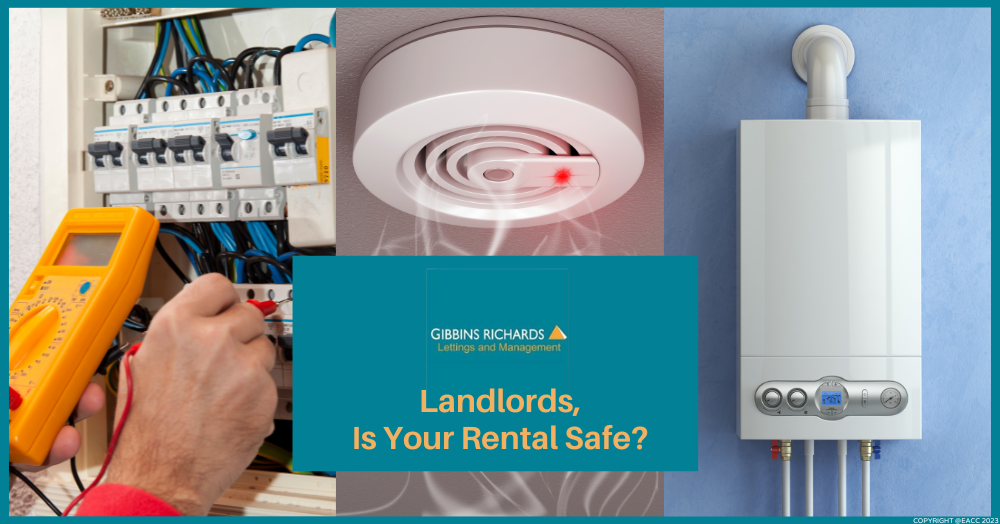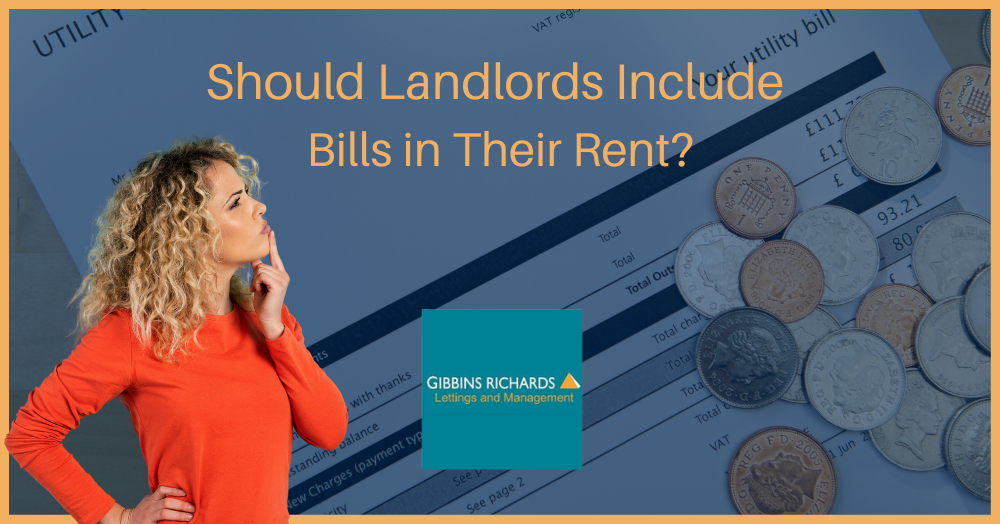Blog
- Details
- Hits: 432
How to Make Sure Your Rental Property Is Safe
Many people are under the assumption that being a landlord is an easy ride. Get your tenants in, collect the monthly rent and that’s it, you’re laughing. Sounds like a dream… Unfortunately, it’s far from the truth, as most experienced landlords and agents will tell you.
Unless you’re lucky enough to have long-term tenants, every time a new lot of renters move in, there are lots of checks to be made, forms to sign, letters to send and on it goes.
One thing that should never be ignored or delayed are your annual safety checks. As a landlord, it is your legal duty to ensure your tenants are living in a safe, hazard-free environment.
In this quick read, we look at some of the responsibilities a landlord should always have at the top of their to-do list. Whilst some are legally required on an annual basis, others are recommended.
Gas Safety Certificate
Every year, a new Gas Safety Certificate needs to be provided to tenants in either electronic or hard copy form. Officially called a CP12 form, this safety check must be performed by a Gas Safe registered engineer. It’s designed to make sure all gas appliances, pipes and flues within the premises are safe and in good working order.
Make sure you add the date to your diary a few weeks before it’s due to expire so you can get an engineer in before the current certificate expires. Much like an MOT, a gas safety check can be completed two months before the expiry date without shortening the life.
Electrical Safety Checks
Landlords must ensure that the electrics within a property (such as sockets and lights) are safe and properly installed. It’s always a good idea to get these checked professionally and to use the services of an NICEIC registered electrician.
Every five years, a landlord must legally provide an Electrical Installation Condition Report (EICR), which will confirm if the electrical system is safe. If you provide movable electrical equipment, such as a microwave, kettle or so on, these must be PAT tested (Portable Appliance Test) annually.
Fire Safety Checks
Legally, every rented property should be fitted with a working smoke alarm and carbon monoxide detector. These should be tested at least once per year, if not more.
If you rent out properties that are furnished, all furniture and upholstery should be fire safe. This is often clearly printed on the label of such items. Tenants should be advised to keep all escape routes clear from obstruction in the event of an emergency – a point to also check during routine landlord inspections. Some rental properties must also have fire extinguishers and other safety equipment to hand – it’s best to check with a local assessor (Fire Risk Assessors (FRA) Register (ife.org.uk)) if your rental meets requirements.
If you’re a landlord and need help managing your property, please contact our team at Gibbins Richards Lettings and Management Ltd. We’re happy to help.
- Details
- Hits: 492
What Happens When Your Rental is Being Sold
As a tenant living in a rental property, you need to be aware of your rights. Fortunately, due to recent reforms in legislation, you’re now more protected than ever when it comes to matters of eviction and deposits. But what if your landlord tells you they’re planning to sell the property where you live?
First things first, don’t panic. If you’ve signed a tenancy agreement, your landlord must stick to it, even if they’re planning to sell the property.
In this quick read, we look at some questions you might have if your landlord decides to sell.
Will I be evicted?
While there isn’t a straightforward answer to this question, you can’t be evicted just because a landlord is selling. Instead, landlords must follow a set protocol.
If you’re within your contract period, there are no legal grounds for the landlord to evict you (unless you have breached your contract).
If your contract has a break clause, they must give you two months’ notice before the clause date, or two months’ notice before the end of the tenancy.
However, if your fixed contract has run out or you’re on a rolling contract, you should be given two months’ notice if the landlord wants you to leave.
Do I have to allow access to the property for viewings?
You must be informed at least 24 hours in advance of a viewing, and it must be at a reasonable time. Try and agree the viewing appointment for a time that’s convenient for everyone.
Who is responsible for repairs and maintenance when my rental address is on sale?
Your landlord is legally responsible for all repair and maintenance issues whilst they own the property. This does not change, even whilst the property is on the market.
What happens once the property has been sold?
If you’re within your contract period, then nothing should change apart from the landlord. You can carry on living in the property as per the terms of your tenancy agreement.
The new landlord should contact you within two months to advise you of the change of ownership and provide their name and contact details. They may want to carry out safety checks to ensure the property is fully compliant. Your original deposit will be transferred to the new landlord, and they should let you know which tenancy deposit scheme they are using.
If you’re looking for a new rental property, please get in touch with our lettings team at Gibbins Richards Lettings and Management Ltd.
- Details
- Hits: 478
Eight Reasons Why Landlords Should Refurbish Their Buy-to-Lets
“If it ain’t broke, don’t fix it.” That’s the view some landlords take on the question of renovating a buy-to-let.
They do the absolute minimum in terms of maintenance and repairs and only manage to meet their legal obligations by the skin of their teeth.
The décor is shabby and tenant turnover is high, but hey, they’re saving every possible penny, so they feel rather pleased with themselves.
So, is this the best way to get the most out of your property investment?
We’d argue that instead of running your buy-to-let down to its bare bones, often the smarter option is to be proactive and refurbish or extend.
We’re not talking about budget-busting Grand Designs-style projects. And, of course, it’s important to take the age and condition of a property into consideration before you make changes.
But carefully costed refurb works that appeal to your target demographic will pay for themselves in the long run.
Here’s why.
- You’ll attract better tenants. In this visual age, tenants have high expectations. A property that is fresh and modern will stand out in online marketing and in-person viewings.
- Shorter void periods. Tenants will quickly snap up a property that looks great.
- Fewer tenant disputes. Tenants are more likely to treat your property respectfully if it’s well-appointed. If you don’t care what it looks like, why should they?
- Better returns. Renovating a down-at-heel property will allow you to market it to a broader demographic, including professionals.
- Add value to your property. If refurbishments are carried out to a high standard, you’ll reap the financial benefits when you come to sell.
- Longer tenancies. Tenants will stay for longer in a property they enjoy living in and that isn’t riddled with problems.
- Lower repair costs. Ageing kitchens and bathrooms can require lots of repairs. Replacing them before they become money pits can save you time and hassle in the long run.
- Energy efficiency. Replacing single-glazed windows, installing insulation or adding solar panels will improve the energy rating of your property, which is good for the planet and your tenants’ energy bills.
For expert advice on adding value to your rental property, contact us here at Gibbins Richards Lettings and Management Ltd today.
- Details
- Hits: 514
Should You Include Bills in Your Monthly Rent for Your Property?
Tenants’ needs and wants are always changing. A decade ago, broadband was a luxury, now it’s a necessity. Since the pandemic, properties with outside space are more popular than ever. So how can you make your rental property as attractive to tenants as possible?
Recent research by property bods at Rightmove has found that ‘bills included’ is now one of the most popular search terms currently used by prospective tenants, overtaking ‘pets’ and ‘garden’, marking yet another change in what renters want.
What does this mean for private landlords? Many landlords running Houses of Multiple Occupation offer bills included as standard practice, so why don’t all landlords?
In this quick read, we look at the pros and cons for landlords of including bills in the monthly rent.
PROS
Makes a property more desirable
By including bills, tenants know exactly what they’ll be paying every month, which could make a rental property more popular, meaning less risk of a property staying vacant.
Attracts different types of tenants
Offering rent with bills included may attract a wider range of tenants, such as students and first-time renters. Younger tenants could find it easier to manage one lump sum as it saves them having to budget every month, and means they don’t have the hassle of finding utility providers or changing accounts over.
Less risk of unpaid bills
If bills are included then you, as the landlord, can ensure all payments are made on time. This makes things a lot easier at the end of a tenancy as there’s no need to check meter readings, change account holder names or dispute unpaid bills.
CONS
Less income
Utility costs can change on a month-to-month basis, especially now, when energy prices are at an all-time high. This may mean a landlord finds themselves paying out more for utilities during the winter months, therefore eating into their profits. Also, just because bills go up, it doesn’t mean you can pass this increase on to tenants. It’s important to check the rules about charging for utilities if you are offering an all-inclusive rent.
More responsibility
Managing the bills for a property you don’t live in could prove complicated. You’ll need to stay on top of factors such as switching suppliers, the fastest broadband provider and so on. Also, if there’s an emergency such as a power cut or loss of water, then it will probably fall to you to contact the supplier as you’re the account holder.
Bill liability
If the worst happens and a tenant fails to pay their rent, not only will you lose out on your monthly income, but you’ll also have to fork out for their bills. Although your tenancy agreement can protect you against such losses, in the short term it will come out of your pocket.
If you’re a landlord looking for tenants, contact our team at Gibbins Richards Lettings and Management Ltd.
- Details
- Hits: 491
Six Questions to Ask When Looking for a Letting Agent
Fed up with self-managing your buy-to-let and want a top-notch professional to do it for you instead? Here’s how to find the best letting agent in your neighbourhood.
So, you’ve decided to get a letting agent to manage your rental. You can’t wait to hand the burden of regulatory red tape and admin over to an expert but are faced with a dilemma. With so many agents out there, how do you find the best one?
The last thing you want is to sign a contract with an agent and find that they never pick up the phone, are slow to deal with repairs and maintenance, and lousy at spotting issues until they’ve become full-blown nightmares.
To help avoid this scenario, ask these six questions.
How long have you been in business?
You’re looking for an agent with good local knowledge and bucket-loads of experience dealing with property and people. Also, check reviews and testimonials.
What do you look for during inspections?
Don’t just ask if an agent conducts periodic inspections (they’ll invariably say yes). Dig a little deeper. As well as looking for the obvious stuff like illegal activity, subletting and damage, a good agent should check for leaks, mould and damp. They’ll also ensure smoke alarms and carbon monoxide detectors work and flag up maintenance issues early.
What’s your marketing strategy?
To attract good tenants and prevent void periods, slick marketing is a must. Ask agents to explain their approach to social media and photography and go online and judge for yourself.
Quiz them on rules and regulations
There are lots of legal requirements associated with renting out property. Ask prospective agents about tenant deposits, client money protection, and gas and electrical safety checks. If they’re hazy on the details or dismissive of the rules, be wary.
What happens on moving-in day?
Top agents do more than just compile an inventory and hand over the keys. They also spend time explaining the location of the stopcock and fuse box (in case of an emergency), when the rubbish is collected and how appliances work.
How do you deal with disputes?
Hopefully, all your tenancies will be smooth-running, but it’s useful to know that an agent can handle tricky situations. Sometimes the biggest challenge in managing tenancies is when tenants fall out with each other. Good agents understand the importance of finding practical solutions (rather than point scoring).
Want to know how we do it here at Gibbins Richards Lettings and Management Ltd? Contact us today to learn about our property management services.














